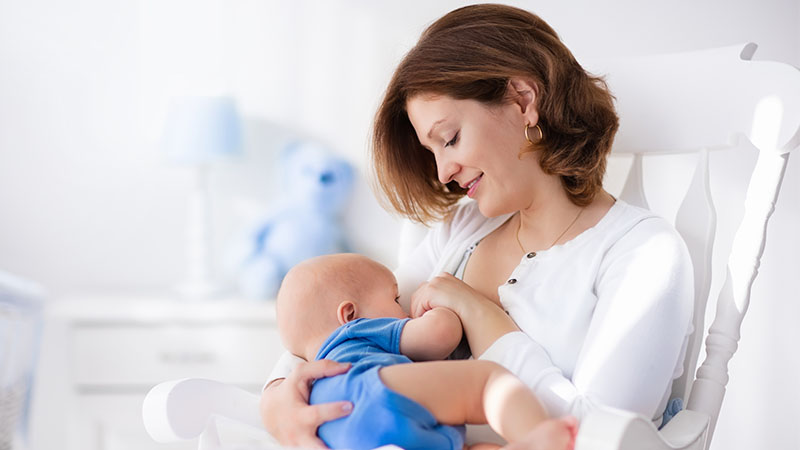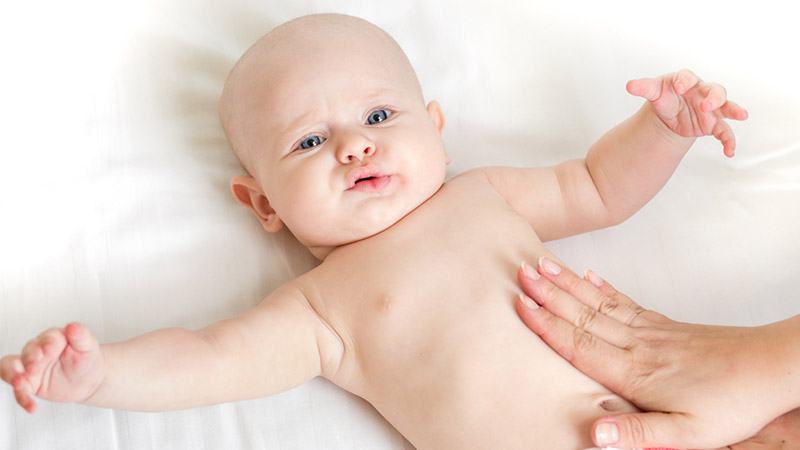Having your first baby can be a scary thing to go through, especially as an expat away from home. Without family and close friends nearby, there’s a real need for external support and knowledge. To help with this, our postnatal expert Melinda Hunt answers some common questions about having a baby.
How can I prepare for breastfeeding?
During your pregnancy, it’s a good idea to get to know your breasts! Over the next few months, they will be growing and changing in preparation for their breastfeeding role. In the breastfeeding bible The Womanly Art of Breastfeeding, Cheryl Chapman, a nurse and massage therapist (and also author of The Happy Breast Book) advises pregnant and nursing mums to move their breasts around at least twice a day. In fact, this can be a very goo idea for all women, whether pregnant or nursing! Cheryl states that the simple exercise of bending at the waist and cupping your hands under each breast and moving it up and down facilitates better self-awareness of changes in the breasts. It also improves lymph drainage, leading to the removal of toxins and therefore enhancing the immune system.
Consider talking to a lactation specialist towards the end of your pregnancy to address any concerns or questions you might have in relation to breastfeeding. The La Leche League is another useful source of information where women can share their breastfeeding experiences. Finally, if you’re going back to work and nursing, you’ll need to talk to your workplace about a hygienic and private facility to pump and store your milk and breastfeed.
The role of a maternity nurse
When a new baby is on the horizon in Hong Kong, many expats will rely on their helper for assistance or call in their family from overseas, pronto! Yet even the most seasoned helpers and grandparents can get frazzled when a newborn arrives. They may also lack up-to-date experience and training.
This is where a maternity nurse or postnatal carer enters the equation. A maternity nurse can play a pivotal role in helping you prepare for the postnatal period via newborn education before and after the birth. Often, parents will get caught up focussing on the birth itself; in my experience, it’s imperative to focus on birth and beyond!
A maternity nurse supports and educates parents and caregivers in basic newborn care, advises on breastfeeding and formula feeding, sterilising, SIDS, sleep and how to handle your cherub lovingly and safely. Other roles include allowing you to sleep and recover, and learning how to settle and soothe your little one with confidence. Ensuring a mum’s mental and physical wellbeing is of the utmost importance too.
Maternity nurses can also be the anchors for women returning to work. The support system they provide can be crucial in enabling new mums to re-establish their roles, careers and positions within a competitive work force. Note: You’ll need to book a maternity nurse in advance, as many are contracted months in advance.
Do I need a baby monitor for my newborn baby?
Often my clients ask me if a baby monitor is a crucial necessity when shopping for their newborn’s arrival. You will often find it on baby item shopping lists, but is it really an essential in the first few months?
Facts of the matter
Let’s look at some of the facts and current research. The American Pediatric Association now states that “infants should share their parent’s bedroom for at least the first six months and, optimally, for the first year of life, based on the latest evidence”. This recommendation is in relation to SIDS prevention.
Based on these recommendations, a baby monitor would not be necessary for night time if a baby is to share the same room as their parents or carer. However, during the day a newborn baby still needs to be supervised and checked regularly. So, if you have a big house or thick walls a baby monitor may give you the peace of mind you need. Baby monitors come in video and audio mode and in some models can be streamed through your smartphone for easy accessibility.
Other options to consider
Another option for the first three to four months is to place your baby in a Moses basket that can be moved from room to room during the day allowing for constant supervision and no need for a baby monitor. Once baby starts to spend naps and night-time sleep in their own nursery from six to 12 months, a baby monitor becomes a more viable option to consider.
When should I transition my baby from a swaddle to a sleeping bag?
For centuries across many cultures it has been an age-old tradition to swaddle. These days, it’s an individual decision whether to swaddle your newborn.
The theory behind swaddling is that it recreates the felling of being inside the womb, helps your baby feel secure and is calming and soothing. Many parents report it assists with better sleep too, plus it diminishes the effect of the Mom or startle reflex. Tucked up like a baby burrito, your little one enjoys the firmness of the swaddle!
However, once baby starts to escape from the swaddle or attempts to roll over (this could be from three to four months) we must look at an alternative as it’s no longer safe to swaddle.
The weighted sleeping bag is a perfect transition for this initial phase. If you think your baby is getting close to this milestone, getting them to practice tummy time will help to develop the neck muscles so they can move their head from side to side and learn to roll over. In fact, this can be encouraged from birth onwards. So, swaddling your baby with one arm out and then after a few days, both arms out ca help prep for this changeover.
All babies are different so it could take a couple of weeks before your little angel settles into their sleeping bag. Note that sleeping bags come in different thicknesses and can be with our without weights. Good luck!
How to help prevent nappy rash
At one time or another you’ll likely be faced with treating your little cherub’s nappy rash. After all, it’s something that can occur even on the most pampered bottom!
What causes nappy rash?
Nappy rash stems from friction from rubbing against the nappy, from wearing a soiled nappy too long, allergic reaction to wet wipes, or a bacterial or yeast infection. In older babies, it can be caused by the introduction of solid food and the changing stool composition or food allergies. Whatever the reason, here are some tips to help prevent further flare-ups!
Tips to help prevent nappy rash
- Remember to always wash your hands before and after changing a nappy – hygiene is of utmost importance.
- Change bubba’s nappy more frequently!
- For ultra-sensitive bottoms, use boiled/cooled water, or alcohol- and fragrance-free water wipes.
- After cleaning/bathing the area, pat it dry without rubbing.
- Use a barrier cream. This will help form a protective layer against rubbing and friction.
- While nappy rash creams such as Desitin, Bepanthen, Sudocrem and Paw Paw cream may assist, if the rash is persistent and blistering, consult your GP for a stronger topical cream.
- Avoid putting on the nappy too tightly – allow the air to circulate.
- Give bub some nappy-free time! Simply lay out a towel on the play mat and let your little one have a kick and roll around without a nappy on. The fresh air will aid the healing process!Having a newborn baby is a wonderful experience, but it can also be challenging and confusing at times. Our Hong Kong-based postnatal expert Melinda Hunt, of Melinda Maternity, is a mother-of-five and has helped countless Hong Kong parents through the early stages of parenthood. Here she explains the benefits of baby massage.
“What should I do if I think my baby has colic?”
Colic is a term used to describe a baby who cries constantly or uncontrollably on a regular basis, usually between the ages of two and four months. American paediatrician Dr Morris Wessel defines it as crying for more than three hours a day, three days a week and three weeks in a row.
There are various theories about what causes colic: immature digestive system, food sensitivities, intestinal illness, reflux, brain immaturity, maternal anxiety transferred to baby, temperament of baby, over/under stimulation. Interestingly, many parents will tell me their babies cry at about the same time every day, commonly late afternoon or early evening. If your baby is crying hysterically and often, take bubs to the GP for a check-up to eliminate any serious conditions.
If you’re breastfeeding, consider your diet; some babies may be sensitive to your consumption of acidic foods, chocolate, gas-producing vegetables, dairy products or caffeine.
Learning basic settling and soothing techniques can be beneficial. Dr Harvey Karp’s book The Happiest Baby on the Block has fantastic tips for new parents. In my experience, the “Five S’s” are a useful go-to plan of attack. Try them!
- Swaddling: wrap baby the right way
- Side/stomach holding: hold baby on the side or stomach to calm crying
- Shushing: Loud white noise can help with calming
- Swinging: Move baby in a rhythmic, jiggly motion
- Sucking: Try a nipple, finger or pacifier
Melinda Maternity is a bespoke postnatal care and night nurse service. Melinda brings first-hand experience and professional advice on topics from feeding and settling to basic baby care.
5177 7240 | melindamaternity.com
See more in our Mums & Babies section
Pregnancy workout for your core
Decking out your nursery: trends and tips
Guide to international schools in Hong Kong








